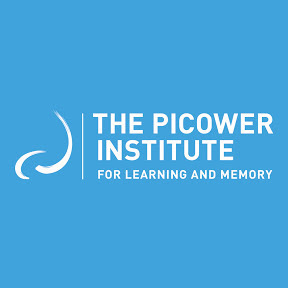
Aging Brain Seminar with Aaron Gitler, PhD, "Defining ALS Mechanisms at Single Cell Resolution"
Description
Aging Brain Seminar with Aaron Gitler, PhD, Stanford University
- Date: Tuesday, April 15
- Time: 4:00pm
- Location: 46-3310, Picower Seminar Room (In-person only)
Defining ALS Mechanisms at Single Cell Resolution
Amyotrophic lateral sclerosis (ALS) is a devastating human neurodegenerative disease caused by a selective loss of motor neurons from the brain and spinal cord. Intriguingly, in ALS, some motor neurons are vulnerable and others are resistant. We used single-cell transcriptomics and epigenomics to explore the heterogeneity of the spinal cord and to discover the changes that occur during ALS. We identified differentially expressed genes associated with degeneration as well as resilience. Our studies have revealed unexpected diversity in the autonomic nervous system, gradients of fast-and slow-firing motor neuron types within motor pools. These findings provide insight into mechanisms of degeneration, molecular underpinnings of selective vulnerability, and may suggest novel therapeutic strategies. We have also been extending studies on the adult human spinal cord, revealing similar logic as in mouse motor neurons.
We also use single cell approaches to define the RNA processing changes associated with ALS pathology. A hallmark pathological feature of ALS is the depletion of RNA-binding protein TDP-43 from the nucleus of neurons in the brain and spinal cord. We discovered that TDP-43 represses a cryptic exon splicing event in the ALS risk gene UNC13A. Loss of TDP-43 from the nucleus causes inclusion of a cryptic exon in UNC13A mRNA and reduced UNC13A protein expression. Our data provide a direct functional link between one of the strongest genetic risk factors for ALS UNC13A genetic variant and loss of TDP-43 function. Beyond cryptic splicing, we have also discovered loss of TDP-43 in ALS leads to widespread alternative polyadenylation changes, impacting expression of disease-relevant genes and providing evidence that alternative polyadenylation is a new facet of TDP-43 pathology.
Finally, we use simple model systems like yeast to screen for modifiers of ALS disease proteins TDP-43 and FUS and identified the polyglutamine protein ataxin 2 as a potent modifier. We then identified mutations in the ataxin 2 gene as genetic risk factor for ALS and have pursued studies of ataxin 2 as a therapeutic target.
Aaron Gitler is the Stanford Medicine Basic Science Professor in the Department of Genetics at Stanford University. He received his B.S. degree from Penn State University and did his PhD studies on cardiovascular development in the laboratory of Dr. Jonathan Epstein at the University of Pennsylvania. Then he performed his postdoctoral training with Dr. Susan Lindquist at the Whitehead Institute for Biomedical Research and MIT. In 2007, he established his laboratory at the University of Pennsylvania and moved to Stanford in 2012. His laboratory has been using a combination of yeast and human genetics approaches to investigate pathogenic mechanisms of ALS. His laboratory has made several fundamental discoveries into neurodegenerative disease mechanisms. These discoveries include discovery of modifiers of aggregation and cytotoxicity of the FTD/ALS disease protein TDP-43, a mechanism to explain how FTD/ALS-linked TDP-43 mutations affect the protein and contribute to disease, and the discovery of novel genetic contributors to human FTD and ALS, including mutations in the ataxin-2 gene as one of the most common genetic risk factors for ALS and a role of cryptic splicing of UNC13A and other synaptic protein encoding genes as a mechanism in ALS and FTD. Gitler’s work has helped to uncover unexpected and novel therapeutic targets for ALS, including preclinical studies of ataxin-2 as a therapeutic target for sporadic ALS, demonstrating that reduction of ataxin-2 levels markedly extends lifespan in TDP-43 transgenic mice.

